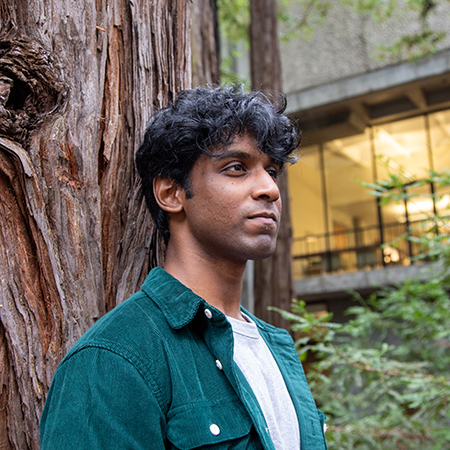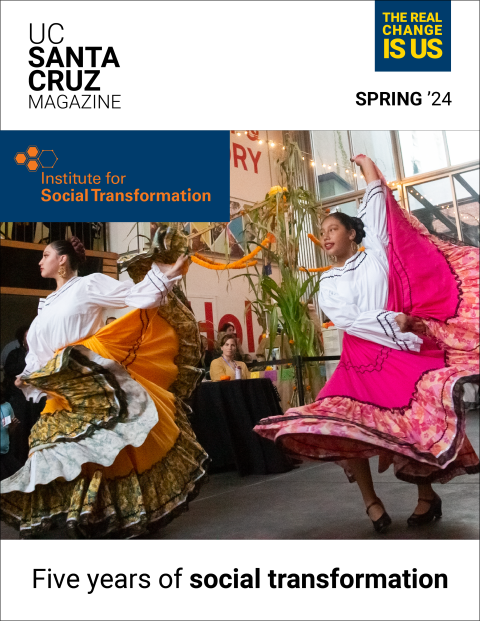Eric Vetha (Rachel Carson ’24, robotics engineering) had an affinity for robotics since he was 10 years old.
As a kid, he was inspired by ASIMO, a humanoid robot created by Honda in 2000. He started to attend robotics competitions like VEX Robotics in Australia and FIRST Robotics in California.
Eventually, his passion for robotics led him to pursue his undergraduate and graduate education at UC Santa Cruz.
Now in his final year of undergrad at UCSC, Vetha is completing interdisciplinary research bridging his robotics expertise to find sustainable methods to better Earth’s future as part of the Earth Futures Institute’s (EFI) Frontier Fellows Program. His thesis aims to revolutionize agriculture and environmental sustainability.
“Dr. Colleen Josephson, my PI, introduced me to the Frontier Fellows Program,” Vetha said. “Seeing the alignment between my research and the Earth Futures Institute’s ideals, I believed it was an ideal fit.”
Piloted in spring 2022 by Astrophysics and Astronomy Professor Emerita Sandra Faber, the Frontier Fellows program funds undergraduate research for a full year, giving students a unique career-building experience. Frontier Fellows are awarded a summer training program stipend of $6,000 to pursue their research, made possible by multiple donors including Claudia and Alec Webster, Walter Loewenstern, Ellen Kimmel, and Catherine Hudson-Webb. Faber emphasized the importance of funding and supporting undergraduate research opportunities.
“Research experiences are the most powerful life-changing experiences in education,” Faber said. “The Frontier Fellows program offers an incomparable opportunity—giving undergraduate students an opportunity to spearhead research that inspires them while receiving the funding and mentorship to do so. Students in the Frontier Fellows program are set up for success in their respective interests well after college.”
Vetha says his experience with the program has provided him with unique hands-on experience beyond anything he could gain from a typical classroom experience.
“Frontier Fellows is hands-on, real-world work—no textbooks. I’m delving into improving the soil moisture system practically, with trial and error, problem-solving, and application beyond the classroom grind. Frontier Fellows is honing my adaptability and on-the-spot learning—vital in the diverse field of Robotics Engineering.”
Vetha’s research focuses on soil moisture management using backscatter tags, an affordable and practical sensor technology.
Vetha emphasizes that effective soil moisture management is a linchpin of modern agriculture and that decades of studies have demonstrated that using soil moisture sensors leads to significant reductions in water consumption while maintaining crop yields. Building upon the work of Dr. Colleen Josephson et al. (2021) in “Low-cost In-ground Soil Moisture Sensing with Radar Backscatter Tags,” Vetha’s project addresses the challenges of water scarcity and the high cost of sensor technology.
“By improving affordability and practicality, my work aims to democratize soil moisture monitoring, reduce water waste, and enhance crop yields. If successful, this research could democratize soil moisture management, reduce water waste, enhance crop yields, mitigate climate change impacts, and combat food insecurity.”
After he graduates with his bachelor’s degree in the Spring, Vetha will pursue a master’s in electrical and computer engineering at UCSC, specializing in robotics, control, and cyber-physical systems.



